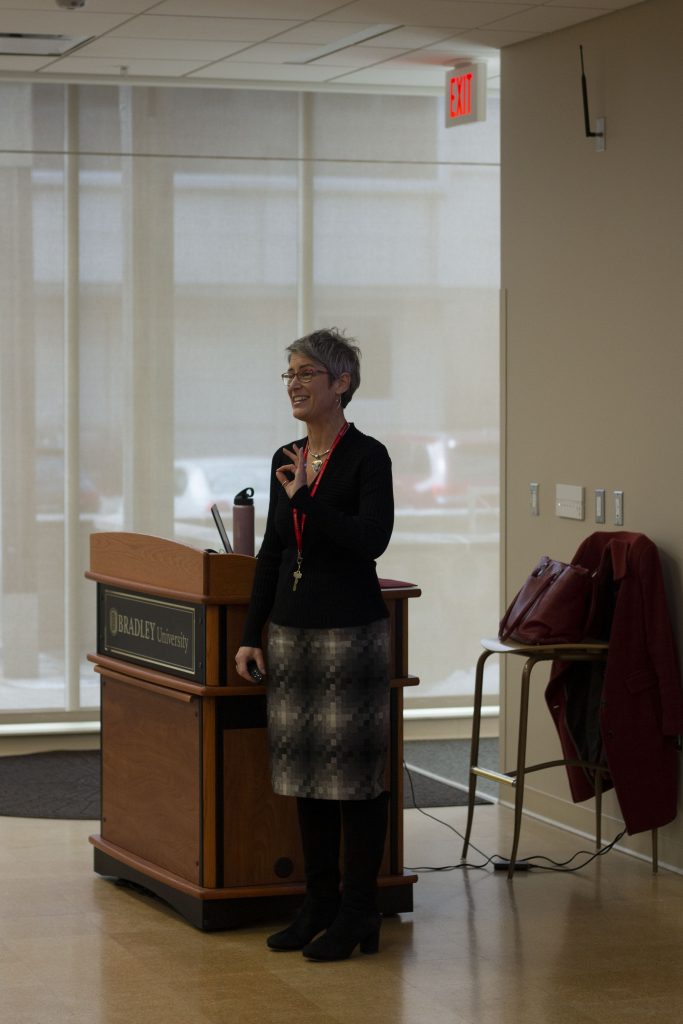
“As a social scientist, whenever something gets as popular as porn, I ask why,” Jackie Hogan said.
In 2014, Time Magazine announced that genealogy websites amassed the largest number of visitors of any web category other than pornography.
Hogan is a professor of sociology at Bradley, as well as the chair of the gender equality taskforce and a member of the Women and Gender Studies Advisory Committee. Hogan has written a book on the topic, “Roots Quest: Inside America’s Genealogy Boom.”
Her lecture on genealogy was the second of seven planned lectures in the Gender Scholars Lecture Series.
“It was very informative,” said Emily Vanko, a senior political science major. “She’s a great teacher.”
Hogan’s lecture detailed the surges of interest in American genealogy after the Revolutionary and Civil wars, as well as in the 1970s and the present day. These surges usually follow times of strife or uncertainty, including wars, mass immigration and rapid technological change. During times of upheaval, people become nostalgic for the past.
“I’ve had Dr. Hogan before as a professor, so I know her work ethic, and I know her compassion for different varieties of people,” said Kali Noel Dodez, a senior English major. “I did not know that genealogy is almost as popular as porn.”
According to Hogan, these feelings have been augmented by an increase in secularization and atheism. As more people reject the idea of a literal afterlife, they seek out ways of ensuring they will be remembered after death.
“They’re finding a sense of belonging by tying themselves to all these generations that came before them … and after them, too,” said Hogan.
Hogan also detailed the problems with the current interest in genealogical research. Shows like “Who Do You Think You Are?” and commercials for Ancestry.com often make painstaking research seem easy. Genetic testing relies on markers that are often inconclusive, and provides more accurate information for those of European descent.
African-Americans conducting genealogical research often cannot find records prior to the signing of the Emancipation Proclamation. Genealogy is often an expensive hobby, with amateur genealogists spending up to $1,500 a month.
Genealogy is also highly gendered. 72-77 percent of amateur and professional genealogists are women. Hogan said the women who conduct this research often view it as a duty to their family. Women are more likely to do kin-work, such as sending birthday cards, that maintains connections between friends and family members.
Despite the preponderance of women in the industry, only 55 percent of conference speakers are women. Hogan attended 15 genealogy conferences while conducting research for her book, and all but one of the keynote speakers were men. Record-keeping focuses primarily on men, and women often change their names upon marriage, making tracking their pasts difficult.




